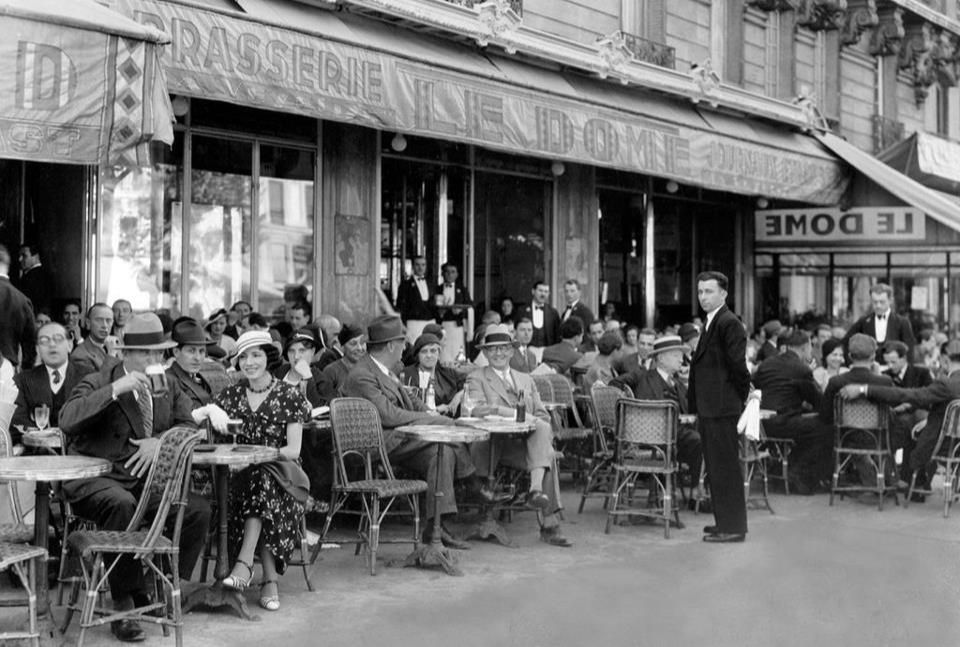An Immigrant's Perspective
- isabossav

- Aug 12, 2020
- 3 min read
Updated: Sep 23, 2020
I was browsing a bookstore in Paris when I came upon Idiss by French lawyer, politician and author Robert Badinter. I was trying to stock up on French books (they are not that easy to find in New York) and didn't have much time, so I just read the usual summary in the back, which promised the "story of a singular destiny" (Idiss's destiny). The book lives up to its promise but does not stop there. It delivers so much more.
Idiss is, first and foremost, a testimony of love from Badinter to his maternal grandmother Idiss. While he shares a deeply touching and personal story, his narration also provides insight on multiple times and places from a perspective that is often ignored in history textbooks (at least in the textbooks I was taught from). Badinter's family was originally from Bessarabia, then part of the Russian Empire but now a region within Moldova. Their perspective is that of Jewish immigrants in France from the pre-war period until the Nazi occupation.
Pre-War (~1900 - 1914)
France was a beacon of light for Jews during the pre-war years. Anti-semitism still persisted but the laws of the Republic, unlike those of Tsarist Russia, protected Jews and their rights. Paris, for Bessarabian Jews, meant a land of freedom, a city of knowledge and culture where their descendants could have a better future.

Les Années Folles (1920s)
The "Crazy Years", France's equivalent of America's Roaring Twenties. The 1920s were a period of prosperity and rich social and cultural developments. With the Naturalization Law of 1927, Simon (Badinter's father) became a French citizen. Simon also opened a fur business whose success brought financial gain and social mobility to the family. They moved to the 16th arrondissement and had a bourgeois lifestyle.

The Occupation (1940 - 1944)
Despite the popular confidence in the French Republic and army, France was defeated and Germany occupied around half of its territory. The Free Zone was administered by the Vichy government, based in Vichy and headed by Marshal Philippe Pétain. This period in history has been dubbed "the collaboration" because the government collaborated with Nazi Germany.

The Aftermath
The 1940s were a dark time for Badinter's family, for France, and for Europe in general. I feel that part of why Badinter's story is so moving is because, unlike in historical movies and books about WWII and the Holocaust that focus primarily on the war period, in Idiss you get to follow and care for the family since before the turn of the century. Badinter's narration takes you from the hardships of Bessarabia, to the migration to France, and then, through hard work and dedication, to the improving lifestyle the family enjoyed after settling in Paris.
You can really feel how after France's victory in WWI, the widespread high morale and prosperous times lulled the French into a false sense of security and hope for the future. But you, as the reader, have all the benefit of hindsight, and know that all that happiness and success will be smashed into pieces in the years to come, which makes the story so heart-wrenching.

Idiss died in April 1942. The war, the French defeat, the occupation, the increasing discrimination, persecution and violence against Jews, and a stomach cancer marked the last three years of her life. It was not the ending she deserved but she escaped the fate of the millions killed by the Nazis. Her son Naftoul was not so lucky.
Naftoul was Idiss' second son. Badinter describes his uncle as a kind, docile man. A good son and a good person. After the Germans occupied Paris, they imposed control stops in the subways and around the city, so he walked the least transited streets, only spoke when absolutely necessary (his Yiddish accent would have given him away as a Jew), stopped frequenting Jewish neighborhoods, and left home only to get food and necessities.
I cannot imagine what it feels like to be in such a constant state fear. Fear of using the subway or walking through busy streets. Fear of being stopped, arrested, and sent to a concentration camp at any time. Fear of strangers, neighbors, and sometimes even friends denouncing you even though you have committed no crime. Fear of yourself, because your speech, name and features could give you away.
Naftoul was denounced, arrested, and sent to Auschwitz. His family never heard from him again. The emotional knockout blow, however, hit me after learning more about his arrest.

It turns out he was denounced by a neighbor, and, after the war ended, his sister Charlotte (Badinter's mother) found out who the neighbor was and confronted her. The below is a translation from an interview given by Badinter to L'Express in which he recounts the confrontation:
Was my brother unpleasant?
No, he was very kind
Then why did you denounce him to the authorities?
Well, for the furniture







Comments